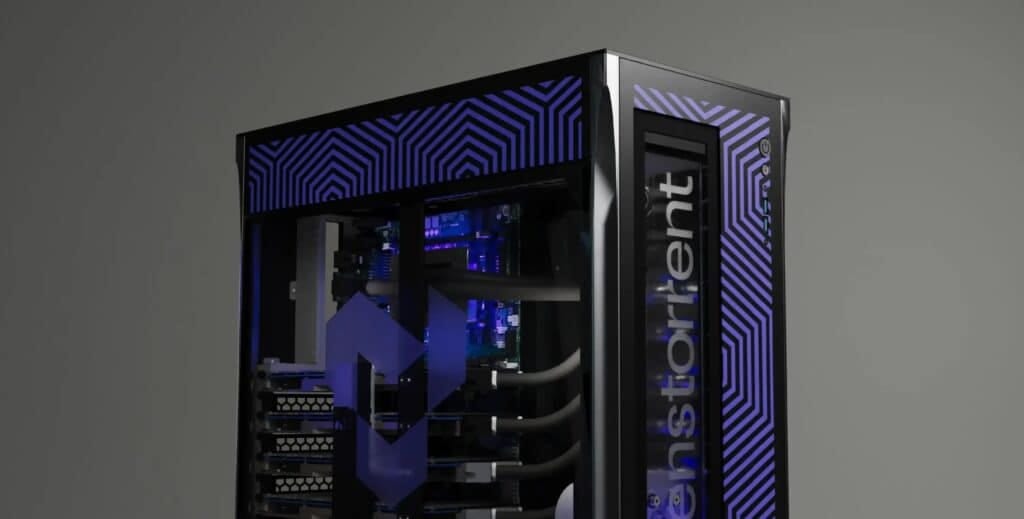In a move that promises to shake up the tech industry, the Canadian AI (Artificial Intelligence) chip startup Tenstorrent, led by renowned engineer Jim Keller, has closed a $700 million funding round, reaching a valuation of $2.6 billion. This capital injection, backed by notable names such as Jeff Bezos and Samsung, aims to position Tenstorrent as a key competitor in a market historically dominated by Nvidia.
A Challenge to Nvidia’s Dominance
Nvidia has held an almost monopolistic position in the AI chip sector for years, providing proprietary solutions that integrate hardware, software, and data center designs. However, Tenstorrent’s entry introduces a disruptive proposition: a focus on RISC-V-based processors, an open architecture that promises greater interoperability and reduced development costs.
According to Jim Keller, CEO of Tenstorrent and recognized for his work with companies like Apple, AMD, and Tesla, Nvidia’s strategy of using complex and costly components, such as High Bandwidth Memory (HBM), poses a barrier to cost reduction. In contrast, Tenstorrent aims to offer more accessible and open solutions, ideal for developers looking to customize their systems without the constraints of proprietary platforms.
A Historic Funding Round
The latest funding round, led by AFW Partners and Samsung Securities, included participation from high-profile investors such as LG Electronics, Fidelity, Hyundai Motor Group, and Bezos Expeditions. These funds will be used to expand Tenstorrent’s engineering team, improve its global infrastructure, and develop large AI training servers, accelerating the adoption of its technology.
With contracts signed worth $150 million, Tenstorrent has already demonstrated significant progress in the market. Additionally, the company plans to release a new AI processor every two years, directly competing with Nvidia’s annual upgrade cycles.
An Emphasis on Open Source and Sustainability
The choice of RISC-V not only challenges Nvidia but also Arm Holdings, another giant in the industry. The open architecture of RISC-V allows developers to customize and optimize their solutions, fostering a collaborative community that, according to Keller, attracts talent and reduces barriers to entry.
Furthermore, Tenstorrent has stood out for its commitment to open-source software, providing tools for developers to own and customize their technology. This approach, according to investors, is a refreshing proposition in a traditionally closed market dominated by proprietary solutions.
The Future of Tenstorrent and Its Impact on the Industry
Although Tenstorrent still has a long way to go, the financial and strategic backing it has received positions it as a serious contender in the AI chip market. Its focus on accessibility, customization, and efficiency could herald a shift in the industry’s dynamics, fostering greater diversity of options for developers and companies.
Aiming to compete directly with Nvidia, Tenstorrent aligns with a growing global interest in more sustainable and open technologies, preparing to launch products that could redefine the future of artificial intelligence.
via: Tenstorrent

